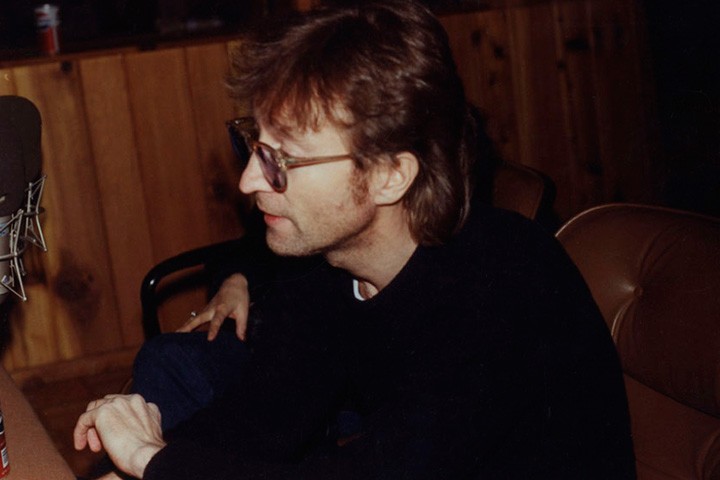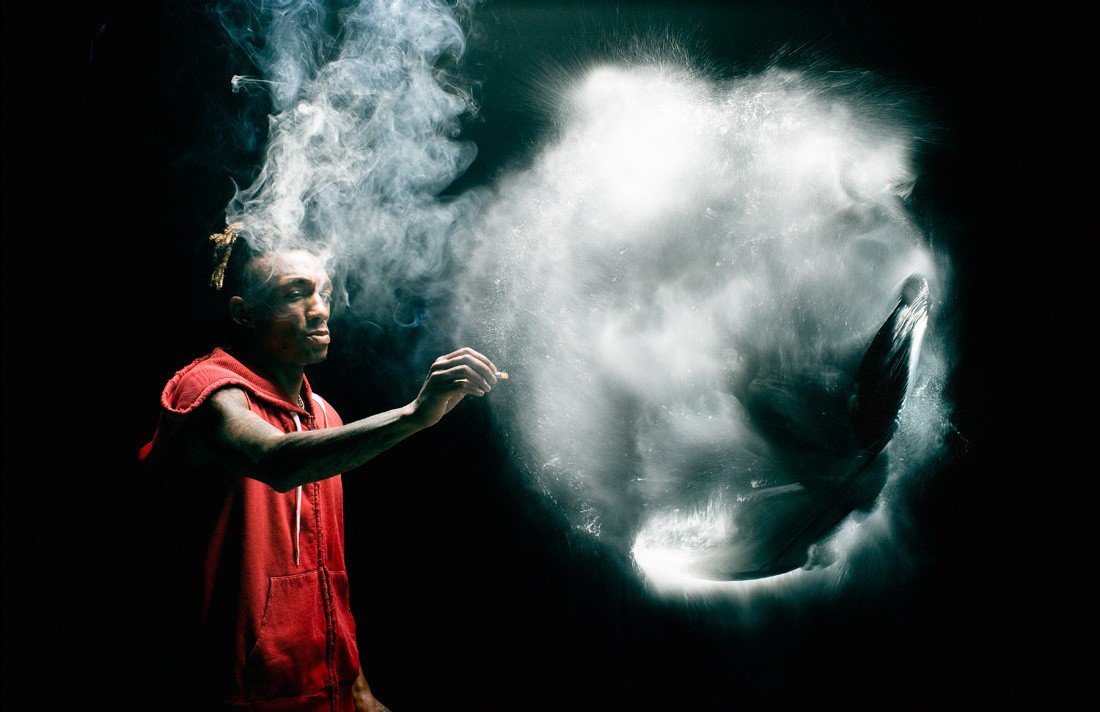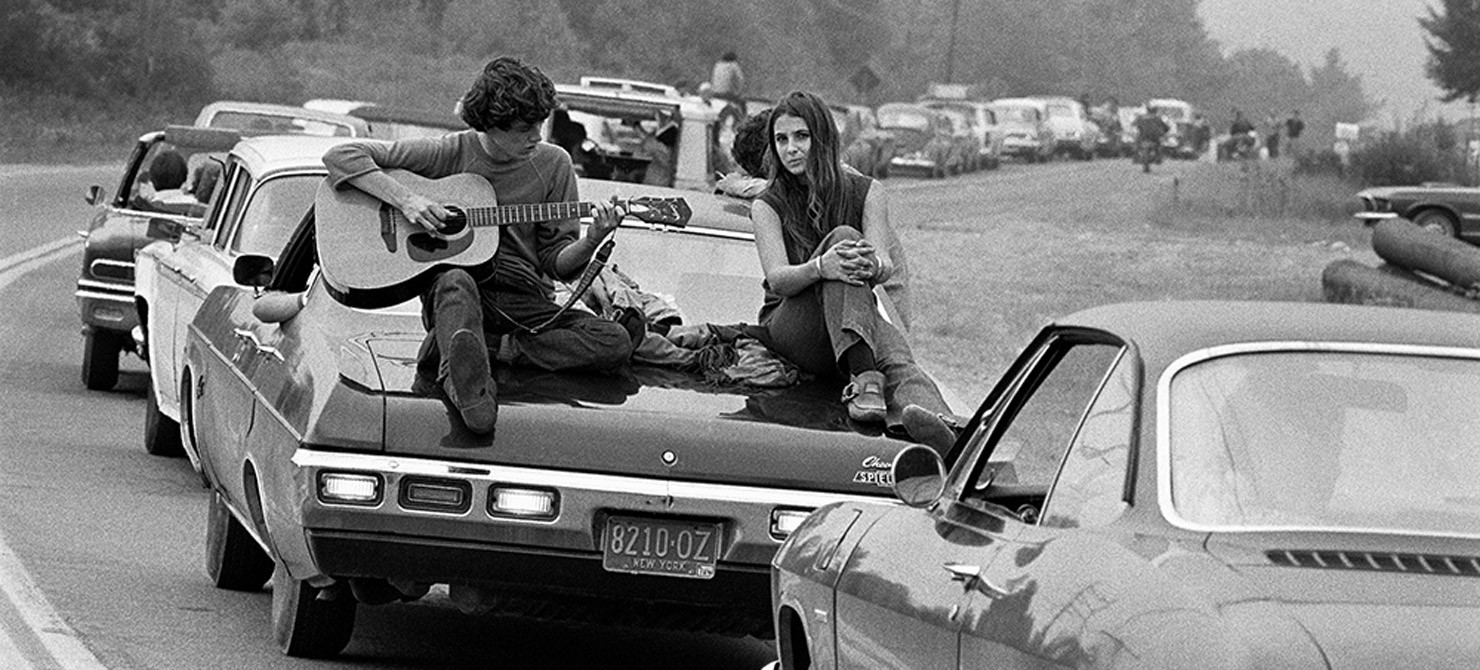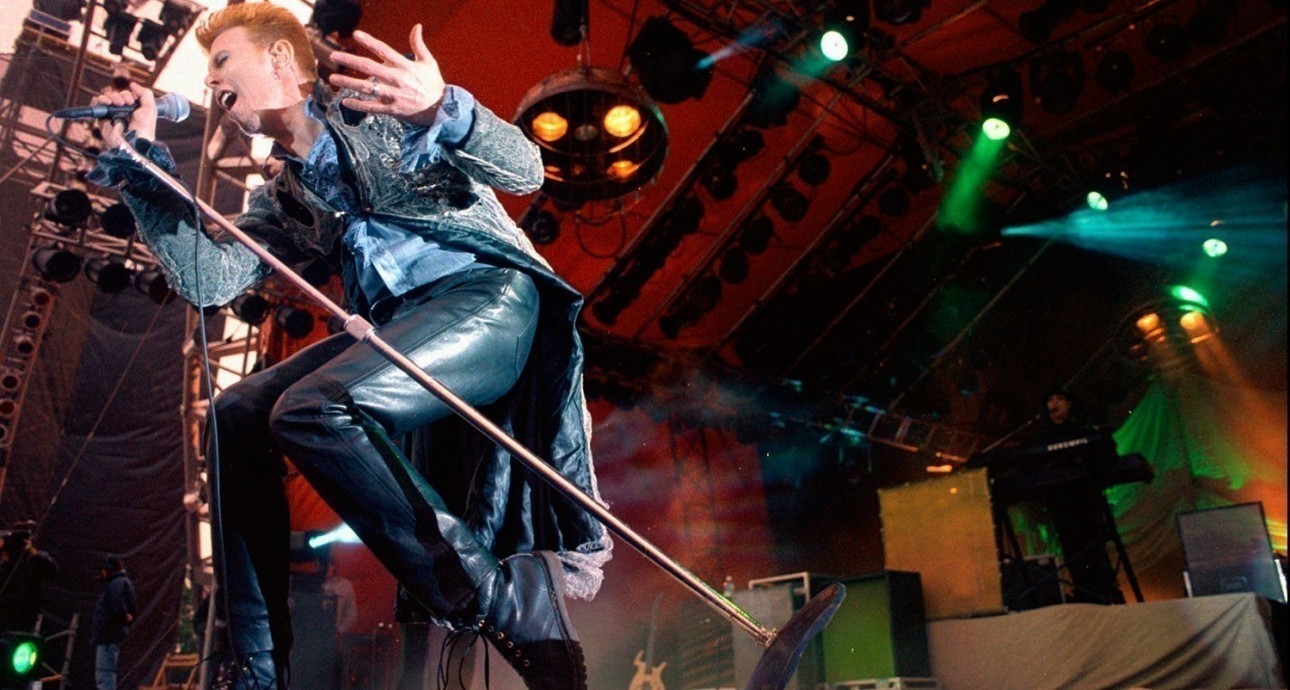
Everything Wrong: 12 Strangest Decisions of David Bowie
Entered the Pop Music Scene from the Wrong End
Cabaret, pantomime, a brass band — all of this junk wasn’t popular in the mid-60s when the pop charts were full of youth rock. And yet Davy Jones, who just came up with a stage name Bowie, was frustrated to tears when his first singles and a debut album did not make it to the top.
The inappropriateness of the young artist made his road to success much longer, but on the way he learned pantomime, working with the bands, got him interested in German cabaret, French chanson, Japanese kabuki theater. He used all of these skills when performing as a Martian rock star Ziggy Stardust, as well as many times afterwards.
Shaved His Eyebrows Off
For many years it was considered that David, who was on a cocaine diet in 1973, shaved his eyebrows off ‘for the sake of beauty’. Only much later we learned the real story: his eyebrows fell victim to a nervous breakdown, aggravated by alcohol. Mott the Hoople band, whose main hit, All the Young Dudes, was written by Bowie, rejected his next present — the song called Drive-In Saturday.
Naked brow arches were the final touch in the image of Ziggy Stardust. 40 years after it is clear that this androgynous character has influenced the present much more than the mop tops of The Beatles or Led Zeppelin’s long dishevelled hair and flares.
Came Out as Gay
Coming out isn’t something you can surprise people with these days — and Bowie is one of those we can thank for it. In 1972, he made the announcement that was very brave for the time.
“I am gay, and have always been.”
The media attention to his coming out was not the last reason why Bowie, aka Ziggy, became the next sensation after The Beatles. By that time the 25-year-old performer had a wife and a son, so his identification as gay doesn’t look very accurate. ‘Bisexual’ would have been more appropriate, but it is not that sensational.
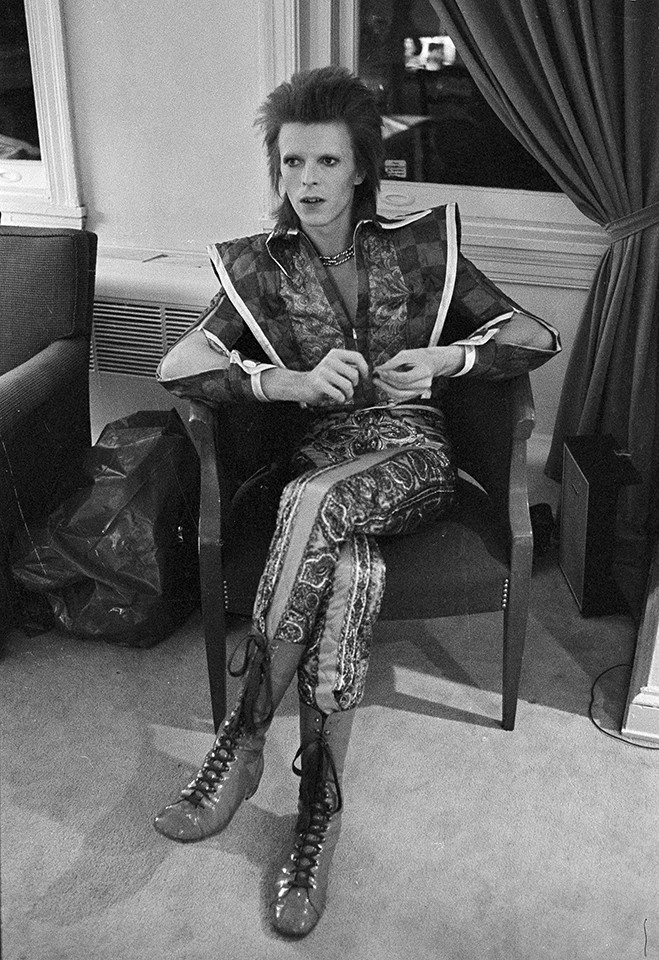
Killed Ziggy
A phrase that buried Ziggy Stardust — “It’s the last show that we’ll ever do” — he said during a gig in July 1973 that was a shock not only for the fans, but also for the band. Abandoning the well-promoted image at the peak of popularity looked like suicide, both in terms of publicity and in a psychological sense. David had barely distinguished between himself and his character by that time, and the drugs helped him in that.
So, it is even more surprising that this turned out to be a sound decision. If the old Ziggy did not abandon his narrow role, he would have probably been touring the provincial towns of the former USSR later in life.
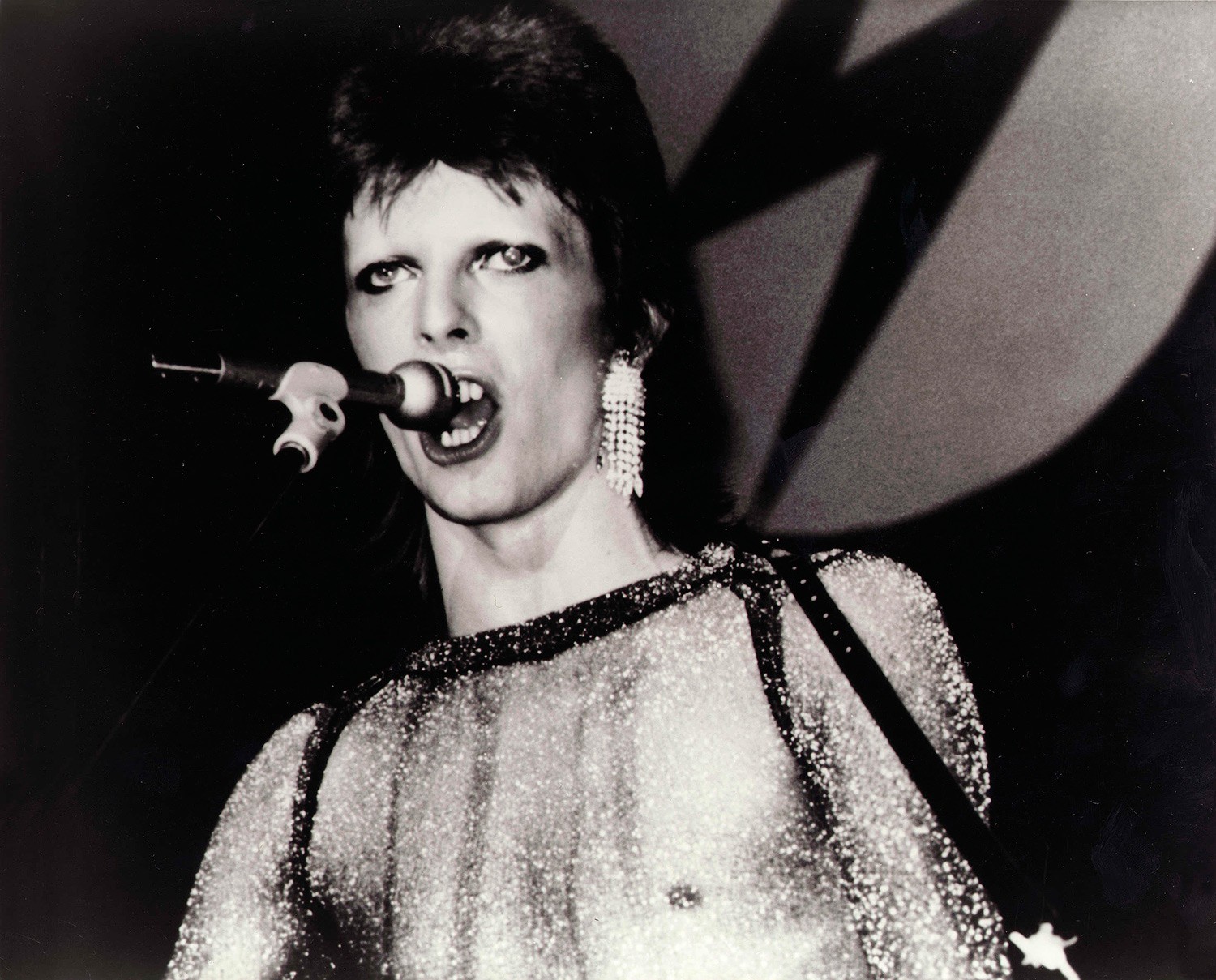
Leaned towards ‘Black’ Music
Bowie barely grew his eyebrows back when he did his hair in the style of the movie stars of the 1940s and started wearing a suit jacket with padded shoulders and cigarette trousers. To start playing soul and funk he recruited the musicians and backing singers who were experienced with these genres in the US. Together, Bowie, who was white as a sheet, and black musicians looked and sounded rather unusual for the time. However, the single Fame became number one in the American charts, and Bowie, who lived on cocaine, made history as the first white person to perform in the main ‘black’ TV show, Soul Train.
The rapid change of direction cost Bowie part of his British audience, but he gained much more. From then on the hot rhythms performed by the black musicians became the important element of his songs, adding a different taste to cold European melodies.
Went Avant Garde
In 1977, Bowie’s pendulum swung in the opposite direction: he came back to Europe to create the new classics together with the minimalism genius Brian Eno. The second side of his record called Low featured avant garde instrumental plays, where most of the parts were played by Bowie himself. This step was so radical the label refused to release the album at first.
Jazzmen love to cover Bowie’s songs from the late 1970s. One of the pillars of contemporary classical music, Philip Glass, wrote two symphonies based on them.
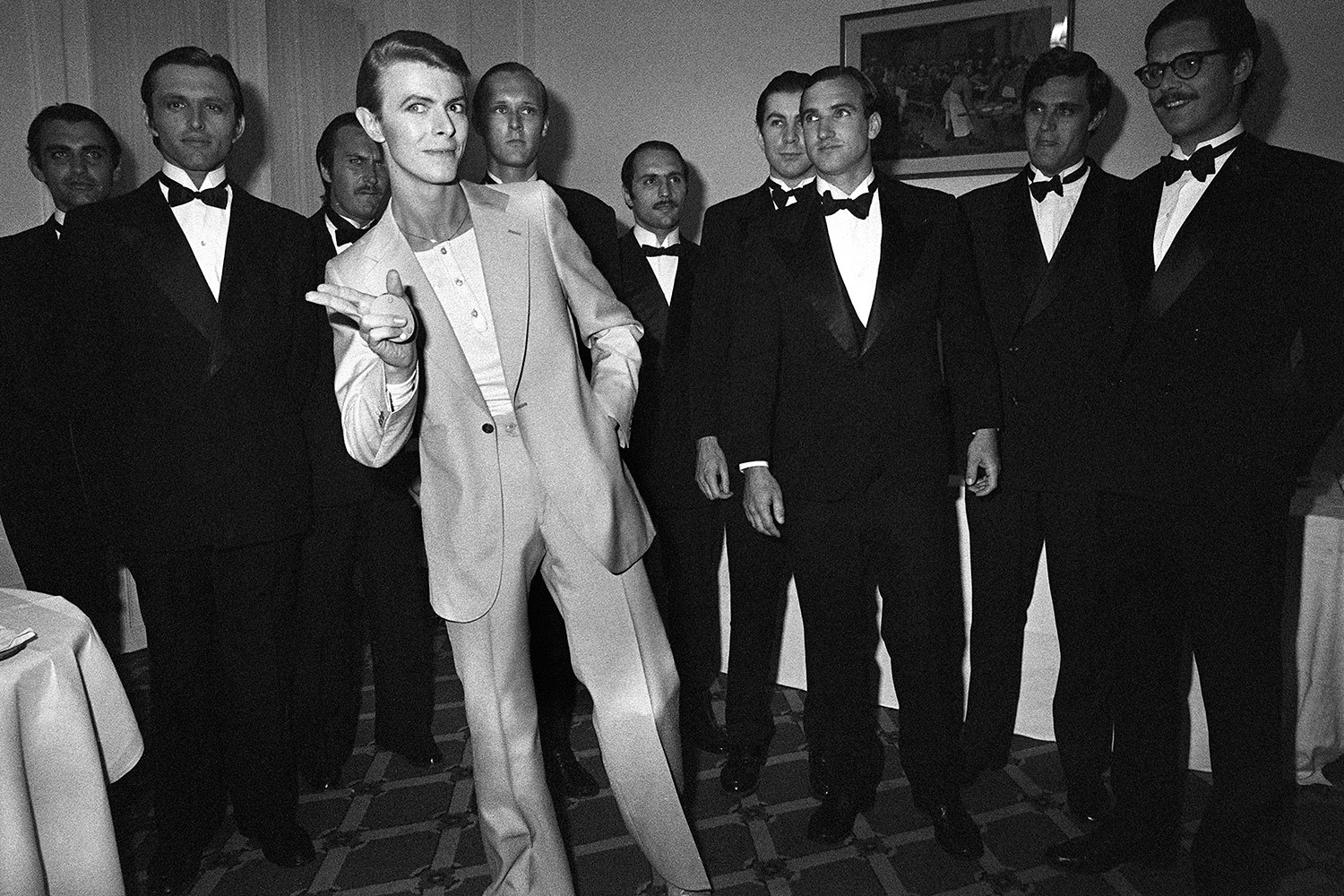
Decided to Write Songs for Regular People
In 1983, Bowie set himself the task to release an album of superhits, declare that this regular, smiling, almost red-cheeked person is his real self, and have it pay off during his world tour later.
It all worked out: his hits gathered stadiums, he turned into a first-rate world-class star. He signed an unprecedentedly expensive contract with EMI, and the Let’s Dance album became his best selling record.
Started a Garage Band
This could be defined as a nervous breakdown that lasted for four years. Contrary to logic, Bowie was appalled by the other side of big fame — the quality of the audience at his gigs. He grumbled: “What are Phil Collins fans doing at my gigs?”. And so David got rid of them by starting a band that played something between blues rock, heavy metal and noise.
Tin Machine did some unique guitar work, and being in a small-audience band helped Bowie get out of the creative dead end, but fans and critics did not welcome this project, and rather thought of it as of a whim that lasted too long.
Started Playing Industrial and Drum’n’Bass
“Bowie goes on a tour with Nine Inch Nails”, “Bowie recorded a drum n bass album” — it seemed in the middle of 1990s that the respectable rock performer, who seemed to be inseparable from his close-fitting jackets, went mad.
A conceptual album 1. Outside told the story of the investigation of the art murder in the world of a near future. It sounded like a cocktail of the newest electronic music and free jazz jam session.
1. Outside and Earthling that followed brought Bowie 20-somethings, with whom the musician, who was in his 50-ies, started talking in the language of genres that were relevant to them.
Appeared Only in the Bad Movies of Good Directors
Bowie’s rare success in film were his appearances in The Man Who Fell to Earth, where the artist who had an alien look and didn’t have to act, and Labyrinth, which was aimed at an audience of teenage girls, where his leggings came in handy.
Praised Decay and Death in His Songs
Even as a successful businessman, Bowie remained a searching soul. Literally all of his songs are full with the feeling of loneliness, pessimism bordering on despair, masochistic obsession with death and the search for God. The enormous audience that is attracted by Bowie’s songs on these topics, taboo in pop culture, shows how big the demand for religion is in society.
Bowie’s song about loneliness in space was performed by Chris Hadfield, the former commander of the International Space Station.

Mysteriously Disappeared
In 2004, after a heart attack, Bowie, a workaholic, stopped making new music. Rare shows stopped in 2006, and he gave his last interview a year after. His silence lasted so long even his most devoted fans made peace with the fact that he retired. However, on January 8, 2013, on David’s birthday, a video to the first single in 10 years was published on his website, along with the news about the release of the new album.
Bowie created a media storm without saying a word. The album became his biggest commercial success since Let’s Dance. In fact, this is the first release in history, which was recorded by a great musician after his death — during the years of his silence, in the hearts of music lovers Bowie took the same place as the most important dead men of rock: Elvis, John Lennon and several other musicians of similar stature. Sadly, this year on January 10, two days after the release of a new melancholic, difficult and strange album called Blackstar, Bowie joined them literally.
New and best
